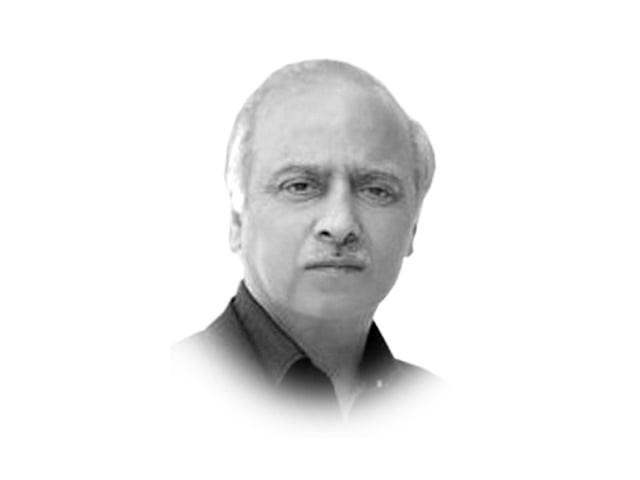Reasons to ponder
International mainstreaming requires Pakistan to pull the plug on all non-state actors operating on its soil

The writer heads the independent Centre for Research and Security Studies, Islamabad and is the author of Pakistan: Pivot of Hizbut Tahrir’s Global Caliphate
This directive coincided with news from Karachi that the Rangers are now set to take the counter-crime and counterterror campaign to a new level by going after terrorists, contract killers and their facilitators, particularly those involved in attacks on law enforcers, security personnel, lawyers and witnesses. Launched on September 5, 2013, the Rangers-led Karachi operation has so far seen arrests of some 10,353 suspects in 5,795 raids. Officials claim the detainees include 826 terrorists, 334 target killers and 296 extortionists. As many as 364 alleged terrorists associated with various banned organisations — including al Qaeda, different factions of the Tehreek-e-Taliban Pakistan and the Lashkar-e-Jhangvi — were also killed in gunfights.
Both the counter-terror and counter-crime campaigns got an extra kick after the military and the government converged on the National Action Plan (NAP). Given the capacity gaps within the civilian and military security establishments, the progress in general has so far been encouraging for the simple reason that the NAP and the Karachi operation have unleashed a new socio-political dynamic and created space for a more critical and bolder discourse on some fundamental issues.
Recent rulings and observations by the Supreme Court in blasphemy related cases offer a case in point; while the Court, in a courageous move upheld the death sentence awarded to Mumtaz Qadri, it also ruled that “any call for reforming the blasphemy law (Section 295-C Pakistan Penal Code) ought not to be mistaken as a call for doing away with that law and it ought to be understood as a call for introducing adequate safeguards against malicious application or use of that law by motivated persons”. This observation was apparently not conceivable until recently, and it certainly reflects the unfolding of a more pragmatic approach on the issue.
Pemra’s latest letter on banned outfits and the NAP actions against them are also rooted in some of the constitutional duties of the state. One of them — under Article 256 — is to prevent private individuals and groups from operating as private armies capable of functioning as a military organisation. This implies that the monopoly on the use of force rests with the state alone and that is why, one would assume we are seeing the indiscriminate action against all private militias.
All this sounds encouraging. Some questions, however, remain unanswered. How do the government and the security establishment plan to deal with the huge organisational infrastructure (seminaries and mosques) and affiliated entities, such as the FIF, that essentially belong to the JuD/LeT? Does the Pemra directive to refrain the media from covering proscribed organisations reflect a logical step as part of a well-thought out pragmatic approach or is it just another ploy to fend off criticism and appease critics? Have major stakeholders really pondered over the reasons as to why Pakistan got to this state in the first place?
Operation Zarb-e-Azb and the NAP do reflect a new awakening — however sluggish — in the context of the multiple crises that we face. But what is also desperately needed is introspection as to what necessitated these hard power interventions. What contributed to the proliferation of militants, criminal mafias and the deadly mix of organised crime and religious militancy? Hopefully, all stakeholders will finally realise that abhorring, violating and disregarding the law can lead a nation down the path of political instability and societal chaos, which offer fertile ground for corruption and encourage non-state actors to indulge in nefarious activities. Beyond doubt, non-state actors remain an existential threat and a bane for Pakistan’s external relations. International mainstreaming requires the country to indiscriminately pull the plug on all non-state actors operating on its soil.
Published in The Express Tribune, November 4th, 2015.
Like Opinion & Editorial on Facebook, follow @ETOpEd on Twitter to receive all updates on all our daily pieces.















COMMENTS
Comments are moderated and generally will be posted if they are on-topic and not abusive.
For more information, please see our Comments FAQ